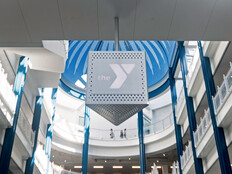5 Ways Sports Teams Use CRM Systems
Sports fans are unique and devoted consumers. In one way, says customer relationship management industry analyst Paul Greenberg, a sports fan is the optimal customer, frequently promoting and communicating about their favorite brand. But harnessing that passion and learning how to “manage and communicate and embrace them in ways that satisfy both team/league/venue and the fan” is more complicated.
“The sheer quantity of fans and the sheer level of the expectations of each of these fans is breathtaking,” says Greenberg in a ZDNet article.
Many sports teams rely on CRM software to help them create, build and manage fan relationships. Microsoft’s Dynamics CRM is a popular choice. According to Greenberg, “about 65 to 70 percent of all sports including teams, leagues and venues, and over 80 percent of major league baseball use Dynamics CRM or some part of it.”
MORE FROM BIZTECH: Drones and VR are officially on the field for pro sports.
Why is CRM software so important for sports teams? Because the financial success of a team — whether it’s football, soccer, baseball or another sport — is about more than how it plays the game. It’s about keeping fans engaged.
Here are a few important ways sports teams use CRM software:
1. To Build Detailed Profiles of Fans
According to Microsoft, Britain’s Leicester City Football (that’s soccer, for those in the U.S.) uses Microsoft Dynamics to build profiles of all its supporters based on ticket and retail purchase history, demographic information, match attendance and website signups. Caroline von Schrader, senior manager for revenue strategy for the Washington Nationals, said during a 2018 panel discussion at CRM Evolution 2018 that the team collects extensive data on fans. “We know exactly what each customer is buying, how they’re interacting and engaging with the team, which emails they’re opening, what they’re buying at the team store, what food products they’re buying, which types of games and which opponents they’re coming to,” von Schrader said, according to Destination CRM.
2. To Send Customized Messages or Promotions to Targeted Groups of Fans
Leicester City Football used its detailed fan information to identify and segment audiences for engagement email campaigns. Jamie Tabor, head of marketing at the club, tells Microsoft, “We set out to provide all the key information fans are looking for before and after a game, in a nice easy to digest format. The increased click-through rates show it’s been a positive move.” Von Schrader said the Washington Nationals use data to target specific groups as well. “There’s different types of customers and we have very targeted email offers and other single-game ticket offers that we're constantly trying to target these specific fans for and see how they respond, and then what we can continue to learn about these fans and our new fans that we’re acquiring.”
3. To Increase Ticket Sales
Von Schrader said the Washington Nationals’ data is used to promote ticket sales. “By having a 360-degree view of the customer, we’re able to know which customers would be the best fit for which packages, which season plans, which single-game ticket offers, and things like that,” she said. Similarly, Linda Rosencrance tells MS Dynamics World that a National Football League team used the CRM to help gauge individual customers’ ability to pay for season tickets, ensuring the team’s sales force had the right data when approaching a potential season ticket holder. Russell Scibetti, president of KORE Planning & Insights, notes customers are 35 percent more likely to buy a ticket plan if they feel the message they receive was customized to them.
4. To Get Support from Sponsors
CRM manager Kristian Gotsch tells The Business of Sports blog that sponsors are no longer satisfied with being tangentially connected with a team brand. They desire deeper and more intricate integration with fans. “Today’s sponsors are more demanding when it comes to understanding the customers of the club (i.e. the fans),” Gotsch says. “Sponsors want to know the details of the supporters (e.g. demographics, behavior, preferences) and see how they match with the company’s brand, image and messaging. Furthermore, clubs who understand their fan base are able to proactively provide sponsors and partners with much better propositions and insights than their competitors.”
5. To Keep Fans Engaged
There are plenty of distractions, even for loyal sports fans. Instead of attending games in person, they can watch at home or online or turn to any one of hundreds of other entertainment options, which means sports teams have to try harder than ever to get fans into the stadium. “Clubs have to offer the fan more if they want to keep them interested in the stadium experience,” Gotsch says. “What strategy and activities a club will choose to entertain and engage with fans (before, during and after a game) are determined through data analysis and interpretation.” Knowing what fans want and how they behave and how those factors influence each other is a core factor in CRM.









